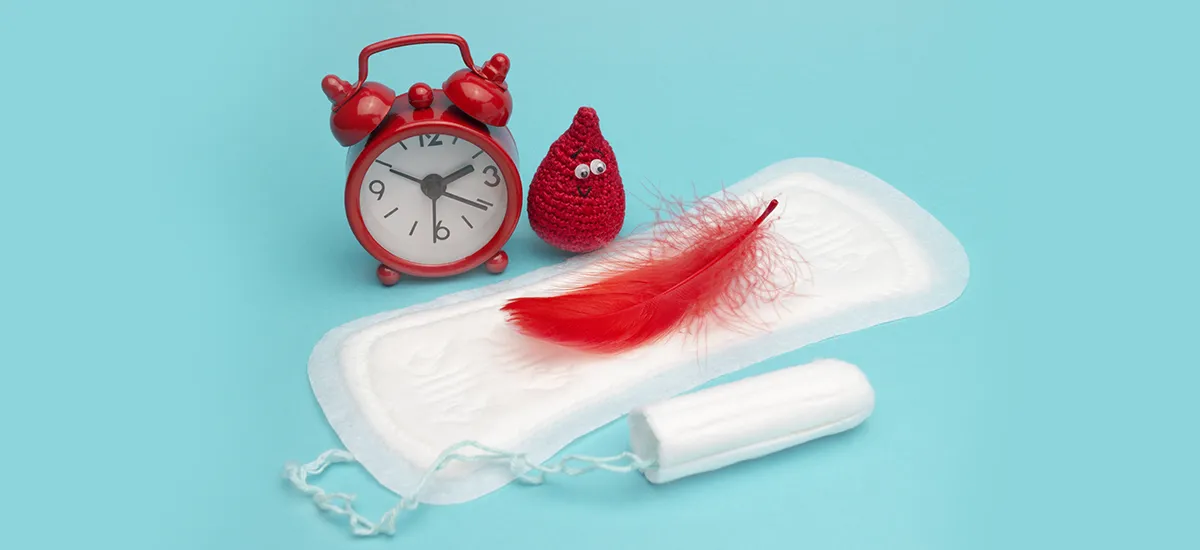Menstruation is a natural biological process experienced by all women. And, as we all know, it is often shrouded in secrecy and stigma. However, understanding and maintaining proper menstrual hygiene is crucial for our overall health and well-being throughout the reproductive years. This guide aims to empower you with knowledge about menstrual hygiene practices, product choices, and ways to manage discomfort. By prioritizing hygiene and open communication, we can dismantle taboos and create a culture of confidence and support surrounding periods.
Why is menstrual hygiene important?
The vagina is a delicate ecosystem with natural flora that protects against harmful bacteria. During menstruation, the menstrual flow can disrupt this balance, creating a risk of infections if proper hygiene is not maintained. Here are some key benefits of good menstrual hygiene -
· Improper hygiene can lead to urinary tract infections (UTIs), vaginal infections (yeast infections, bacterial vaginosis), and even pelvic inflammatory disease (PID).
· Maintaining cleanliness minimizes irritation and odor, allowing you to feel fresh and comfortable throughout your period.
· Knowing you are taking care of your health can boost your confidence and self-esteem during your period.
· Good hygiene ensures you don't have to limit your daily activities due to menstrual discomfort.
Essential hygiene practices for your period
A few ways you can take care of yourself include,
· Wash your vulva (external genital area) with warm water and a gentle, fragrance-free soap at least twice a day. Avoid douching or using harsh soaps that can disrupt the natural balance of the vagina.
· Change your menstrual product (pad, tampon, cup, etc.) every 4-8 hours, depending on the flow and product type. Leaving a product in for too long can increase the risk of infections.
· Always wipe from front to back to prevent bacteria from entering the vagina.
· Opt for breathable, cotton underwear that allows for proper airflow and prevents irritation.
· Wrap used menstrual products in toilet paper and dispose of them properly in a bin. Don't flush tampons or pads down the toilet, as they can clog the plumbing.
Maintaining hygiene throughout your cycle
Menstrual hygiene isn't limited to just your period days. Here are some additional practices for overall hygiene,
· Shower or bathe daily, paying extra attention to the vulva.
· Drinking plenty of water helps flush out toxins and prevents UTI symptoms.
· A balanced diet rich in fruits, vegetables, and whole grains promotes overall health and supports the immune system.
Addressing menstrual discomfort
Menstrual cramps, bloating, and mood swings are common experiences during periods. Here are some tips to manage discomfort,
· Medications like ibuprofen or acetaminophen can help alleviate cramps. However, always consult with your doctor before taking any.
· Applying heat to your lower abdomen can help relax muscles and ease cramps.
· Light exercise can improve blood flow and reduce cramps.
· Yoga, meditation, or deep breathing can alleviate stress and improve overall well-being.
Open communication: Breaking the silence
Talking about menstruation openly can normalize it and create a supportive environment for women to share experiences. This can be especially helpful for young girls navigating their first periods. Encourage open communication with family members, friends, and healthcare providers.
Choosing the right menstrual products for you
With a wide variety of menstrual products available, finding the right fit can feel overwhelming. Here's a breakdown of some popular options to help you make an informed decision,
· Sanitary pads - These are absorbent pads that adhere to your underwear, collecting menstrual flow. Pads come in various sizes and absorbencies to suit your needs. Opt for breathable cotton pads to minimize irritation.
· Tampons - These are inserted into the vagina to absorb menstrual flow internally. Choose the appropriate absorbency based on your flow and change them every 4-8 hours.
· Menstrual cups - These reusable silicone cups collect menstrual flow internally and can be worn for up to 12 hours with proper care. Cups are an eco-friendly option and may be cost-effective in the long run.
· Period underwear - These are specially designed underwear with built-in leakproof layers, offering a comfortable and absorbent alternative to pads or tampons.
The takeaway: Embrace your cycle with confidence
Menstrual hygiene is not a luxury but a necessity for every woman. By implementing these practices, choosing the right products, and prioritizing open communication, you can manage your period effectively and with confidence.
Remember, there's no "one size fits all" approach to menstrual hygiene. The key is to find practices and products that empower you to manage your period with confidence and comfort. In addition, ensure you have a women health insurance plan that covers gynecological issues to help you seek the right medical help for any issues without worrying about finances.




































